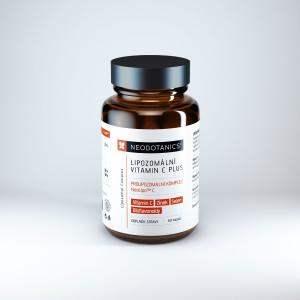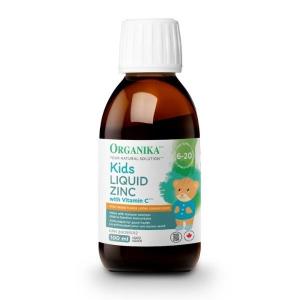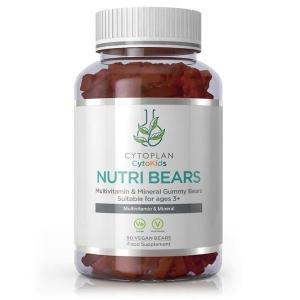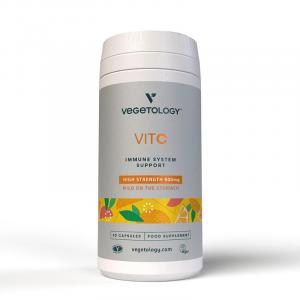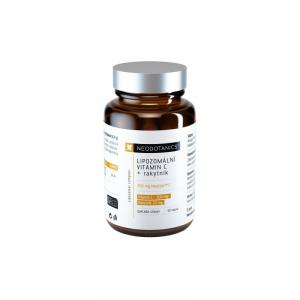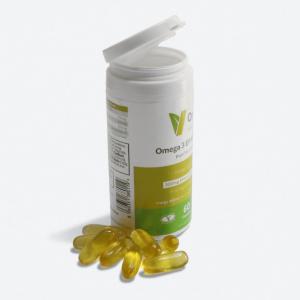
The best vitamins for children's immunity and their true benefits

Why Quality Vitamins for Children are Important and How to Support Their Immunity Naturally
The health of children is the highest priority for every parent. During the period when the body is still developing, and the immune system is learning to respond to new stimuli, it is crucial to provide the right support. A healthy diet, plenty of exercise, and sleep form the foundation, but at certain times — especially in autumn and winter — the natural intake of all necessary nutrients may not be sufficient. In such moments, the best vitamins to support children's immunity come into play. But how do you know which ones are the best?
What Does "Best Vitamins for Children's Immunity" Actually Mean?
It's tempting to grab colorful bottles at the pharmacy or drugstore and simply hope that this product will turn your child into a little superhero resistant to all germs. The reality, however, is more complex. Every child is different, and so are their needs. Some receive enough vitamin C from their diet but lack vitamin D, while others may be deficient in zinc or omega-3 fatty acids.
The key is to choose vitamins based on composition, origin, and absorbability, not based on packaging or taste. The actual "best vitamins for children's immunity" are not necessarily the most expensive. They are those with a functional composition, made from quality ingredients, and free from unnecessary additives such as artificial colors, sweeteners, or preservatives.
According to reviews from parents and experts, the most recommended products are those that combine multiple effective ingredients: vitamin C, vitamin D, zinc, probiotics, or beta-glucans. These help the immune system "train" and respond to external influences without overreacting or underreacting.
What Do Reviews Say? Parents' Experiences Speak for Themselves
It's hard not to notice that reviews of children's vitamins often reveal more than the manufacturer's description. On online forums and in discussions on e-shops, parents share what actually helped their children, what they liked, and what, on the contrary, caused problems for their little ones.
For example, the mother of four-year-old Matyáš describes how her son suffered from recurring colds and coughs. After consulting with a pediatrician, they started using a supplement with beta-glucans, zinc, and vitamin D. "We've been without antibiotics for the second winter," she writes in her review. Similar experiences are shared by parents who included probiotics in their children's diet — especially if the child suffers from frequent viral infections after starting kindergarten.
However, reviews also highlight the downsides of some products. Some multivitamins have beautiful packaging and taste like candy but contain unnecessarily high amounts of sugar or, conversely, very low concentrations of active ingredients. In other words, the child swallows the tablet, but their body gets almost nothing from it.
Key Ingredients for Children's Immunity – What Should Quality Vitamins Contain?
- Vitamin D3: Essential for the functioning of the immune system. In our latitudes, children often lack it in winter because it is produced in the skin through sunlight exposure.
- Vitamin C: A powerful antioxidant that supports immune defense and helps the body fight infections.
- Zinc: A mineral that contributes to normal immune system function, wound healing, and healthy skin.
- Beta-glucans: Natural polysaccharides extracted, for example, from oyster mushrooms. They stimulate immune cells and help protect against infections.
- Probiotics and prebiotics: Important for a healthy intestinal microflora, which plays a crucial role in the body's defense.
- Omega-3 fatty acids (e.g., DHA and EPA): Not only for the brain but also for immunity and anti-inflammatory balance.
Try our natural products
When choosing, it's worth reading labels and paying attention to whether the product contains synthetic sweeteners, gluten, or lactose — especially if the child is sensitive to certain food components.
How Dietary and Vitamin Changes Helped a Regular Family
The Novotný family lives in a small town in Vysočina and has two children – five-year-old Klárka and eight-year-old Tomáš. A year ago, they noticed that their children were often sick, especially during the school year. "We were going from one virus to another," Mrs. Novotná confides. They changed several things at once — started cooking more at home with fresh ingredients, reduced sweets, and included green smoothies, nuts, and fermented foods in their diet. In addition, on the pharmacist's recommendation, they started giving their children a natural multivitamin with probiotics and vitamin D.
Within three months, they noticed a change: the children had more energy, were less sick, and even focused better at school. This example shows that vitamins alone are not a miraculous cure, but in combination with a healthy lifestyle, they can significantly help.
How to Choose the Right Children's Vitamins?
When choosing vitamins for children, it's not wrong to follow a few proven principles that will make your decision easier and, above all, ensure you don't make a mistake. First and foremost, it's definitely a good idea to discuss it with an expert — a doctor or pharmacist can advise you specifically according to your child's needs, which is crucial, especially if they have a health issue or special nutritional requirements.
When making the choice, watch the composition, ideally opting for products that do not contain unnecessary additives — the fewer additives, the better, and if possible, choose products with a natural origin. Feedback from other parents can also be useful, perhaps in reviews or various groups, but it's worth keeping in mind that every child is different, so what suited someone else may not fit your little one.
Also, check the dosage — especially for younger children, it's a fine line, and an excess of fat-soluble vitamins, such as A, D, E, and K, can be more harmful than helpful. And once you start using vitamins, make it part of the regular routine. It works best when given during breakfast or lunch — the body is most ready to utilize them fully at that time.
As well-known pediatrician MUDr. Martin Mrázek says: "It's not about children taking as many vitamins as possible, but about receiving the right ones at the right time and in the right form."
In today's world, where the market is flooded with hundreds of products, it's easy to fall for marketing. All the more reason to rely on proven brands, read compositions, and consider the needs of the specific child. Health is not about trends but about balance and care.
Well-chosen vitamins for children to support immunity can play a crucial role in how often your child gets sick, how quickly they recover, and how they feel during more demanding times of the year. And there's no need to compromise between effectiveness and gentleness — high-quality natural products that combine both are already available on the market.
